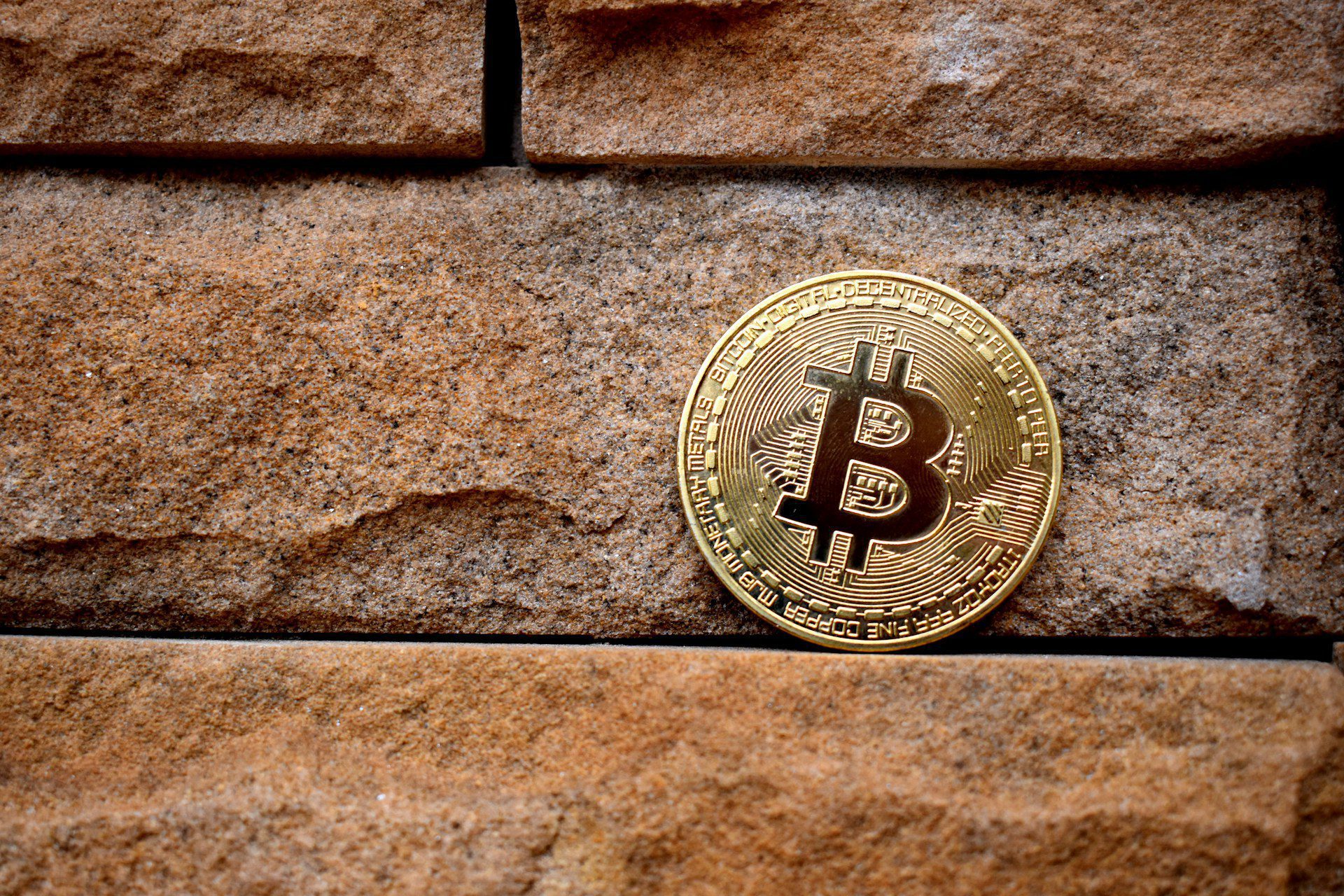“Unlocking Opportunities: Your Essential Guide to Africa’s Leading Crypto Exchanges.”
The African cryptocurrency market is rapidly evolving, presenting unique opportunities and challenges for investors and traders. As digital currencies gain traction across the continent, selecting the right exchange becomes crucial for navigating this dynamic landscape. “A Guide to the Top Crypto Exchanges Serving the African Market” offers a comprehensive overview of the leading platforms that cater specifically to African users. This guide highlights key features, security measures, transaction fees, and user experiences, empowering individuals to make informed decisions in their cryptocurrency journey. Whether you are a seasoned trader or a newcomer, understanding the best exchanges available in Africa is essential for maximizing your investment potential in this burgeoning market.
Overview of Crypto Exchanges in Africa
The landscape of cryptocurrency exchanges in Africa has evolved significantly over the past few years, reflecting the continent’s growing interest in digital currencies and blockchain technology. As more individuals and businesses recognize the potential of cryptocurrencies, the demand for reliable and user-friendly exchanges has surged. This trend is particularly notable in countries with limited access to traditional banking services, where cryptocurrencies offer an alternative means of financial inclusion. Consequently, various exchanges have emerged to cater to the unique needs of African users, each offering distinct features and services.
One of the primary factors driving the growth of crypto exchanges in Africa is the increasing smartphone penetration and internet accessibility. With millions of people gaining access to mobile devices and the internet, the barriers to entry for cryptocurrency trading have diminished. This technological advancement has enabled exchanges to reach a broader audience, allowing users to trade, invest, and engage with cryptocurrencies from the comfort of their homes. Furthermore, the rise of social media and online communities has fostered a culture of knowledge sharing, empowering individuals to learn about cryptocurrencies and their potential benefits.
In addition to technological advancements, the economic landscape in many African countries has also played a crucial role in the proliferation of crypto exchanges. High inflation rates, currency devaluation, and political instability have led many individuals to seek alternative stores of value. Cryptocurrencies, with their decentralized nature and potential for appreciation, have become an attractive option for those looking to safeguard their wealth. As a result, exchanges that facilitate the buying and selling of cryptocurrencies have gained traction, providing users with the tools they need to navigate this new financial frontier.
Moreover, the regulatory environment surrounding cryptocurrencies in Africa is gradually evolving. While some countries have embraced digital currencies and established clear guidelines for their use, others remain cautious, imposing restrictions or outright bans. This regulatory uncertainty can create challenges for exchanges operating in the region, as they must navigate varying legal frameworks while ensuring compliance. Nevertheless, many exchanges are actively engaging with regulators to promote a more favorable environment for cryptocurrency adoption, recognizing that collaboration is essential for the industry’s growth.
As the market matures, the competition among crypto exchanges in Africa has intensified. Established players are continuously enhancing their platforms, introducing new features, and expanding their service offerings to attract users. This competition has led to improved user experiences, with many exchanges prioritizing security, ease of use, and customer support. Additionally, some exchanges are focusing on localizing their services, offering support in multiple languages and integrating local payment methods to cater to the diverse needs of African users.
In conclusion, the overview of crypto exchanges in Africa reveals a dynamic and rapidly evolving market that is poised for further growth. As technological advancements continue to reshape the financial landscape, and as more individuals seek alternatives to traditional banking systems, the role of cryptocurrency exchanges will become increasingly significant. By providing accessible platforms for trading and investing in digital currencies, these exchanges are not only facilitating financial inclusion but also contributing to the broader adoption of blockchain technology across the continent. As the regulatory environment stabilizes and competition fosters innovation, the future of crypto exchanges in Africa appears promising, with the potential to transform the financial landscape for millions.
Top 5 Crypto Exchanges for African Users
As the cryptocurrency landscape continues to evolve, African users are increasingly seeking reliable platforms to engage in digital asset trading. The growing interest in cryptocurrencies across the continent has led to the emergence of several exchanges tailored to meet the unique needs of African users. In this context, it is essential to explore the top five crypto exchanges that have gained prominence in the African market, each offering distinct features and advantages.
First on the list is Binance, a globally recognized exchange that has made significant strides in Africa. With its user-friendly interface and extensive range of cryptocurrencies, Binance caters to both novice and experienced traders. The platform supports multiple payment methods, including local currencies, which facilitates seamless transactions for African users. Additionally, Binance offers educational resources and trading tools, empowering users to make informed decisions. Its commitment to security and regulatory compliance further enhances its appeal, making it a top choice for many in the region.
Next, we have Luno, a platform that has established a strong presence in several African countries, including South Africa, Nigeria, and Zambia. Luno is particularly known for its simplicity and ease of use, making it an excellent option for beginners. The exchange allows users to buy, sell, and store Bitcoin and Ethereum, and it also offers a unique feature called Luno Earn, which enables users to earn interest on their crypto holdings. Furthermore, Luno’s focus on education and community engagement helps demystify cryptocurrencies for new users, fostering a more informed trading environment.
Another noteworthy exchange is Paxful, which distinguishes itself through its peer-to-peer (P2P) trading model. This platform allows users to buy and sell cryptocurrencies directly with one another, providing a level of flexibility that traditional exchanges may not offer. Paxful supports a wide array of payment methods, including bank transfers, mobile money, and gift cards, making it accessible to users across different financial backgrounds. The P2P nature of Paxful also enhances security, as users can engage in trades with escrow protection, ensuring that funds are safeguarded until both parties fulfill their obligations.
Coinbase, while primarily known for its operations in the United States and Europe, has also made efforts to cater to the African market. The exchange is renowned for its robust security measures and regulatory compliance, which instills confidence among users. Coinbase offers a straightforward interface and a variety of cryptocurrencies for trading, making it suitable for both beginners and seasoned investors. Additionally, the platform provides educational resources that help users understand the intricacies of cryptocurrency trading, further enhancing its appeal in the African context.
Lastly, we cannot overlook LocalBitcoins, another P2P exchange that has gained traction among African users. LocalBitcoins allows individuals to trade Bitcoin directly with one another, offering a wide range of payment options. This flexibility is particularly beneficial in regions where traditional banking services may be limited. The platform’s emphasis on user autonomy and security, combined with its global reach, makes it an attractive option for those looking to engage in cryptocurrency trading without the constraints of conventional exchanges.
In conclusion, the African cryptocurrency market is witnessing a dynamic shift, with several exchanges emerging to meet the diverse needs of users. Binance, Luno, Paxful, Coinbase, and LocalBitcoins each offer unique features that cater to different trading preferences and requirements. As the landscape continues to develop, these platforms are likely to play a pivotal role in shaping the future of cryptocurrency adoption across the continent.
Security Features of Leading African Crypto Exchanges
As the cryptocurrency landscape continues to evolve, the importance of security features in exchanges becomes increasingly paramount, particularly in the African market, where the adoption of digital currencies is on the rise. Leading crypto exchanges operating in Africa have recognized the necessity of implementing robust security measures to protect users’ assets and personal information. This commitment to security not only fosters trust among users but also enhances the overall credibility of the cryptocurrency ecosystem in the region.
One of the primary security features that reputable exchanges prioritize is the use of two-factor authentication (2FA). This additional layer of security requires users to provide two forms of identification before accessing their accounts, typically combining something they know, such as a password, with something they have, like a mobile device. By employing 2FA, exchanges significantly reduce the risk of unauthorized access, thereby safeguarding user accounts from potential breaches.
Moreover, many leading exchanges in Africa utilize cold storage solutions to protect the majority of their digital assets. Cold storage refers to keeping cryptocurrencies offline, away from the vulnerabilities associated with internet connectivity. By storing funds in cold wallets, exchanges can mitigate the risks posed by hacking attempts and other cyber threats. This practice is particularly crucial in a market where users may be more susceptible to scams and phishing attacks, as it ensures that the bulk of assets remains secure even if the online platform is compromised.
In addition to these measures, exchanges are increasingly adopting advanced encryption protocols to protect user data. Encryption serves as a critical barrier against data breaches, ensuring that sensitive information, such as personal identification and financial details, is rendered unreadable to unauthorized parties. By employing strong encryption standards, exchanges can provide users with peace of mind, knowing that their information is secure from prying eyes.
Furthermore, regular security audits and penetration testing are essential practices that many leading exchanges undertake to identify and rectify vulnerabilities within their systems. By engaging third-party security firms to conduct thorough assessments, exchanges can proactively address potential weaknesses before they can be exploited by malicious actors. This commitment to continuous improvement not only enhances the security infrastructure but also demonstrates a dedication to user safety.
Another noteworthy aspect of security in African crypto exchanges is the implementation of withdrawal whitelists. This feature allows users to specify a list of approved addresses to which they can withdraw funds. By restricting withdrawals to these pre-approved addresses, exchanges can minimize the risk of funds being sent to unauthorized accounts in the event of a compromised account. This added layer of control empowers users to manage their assets more securely.
In conclusion, the security features of leading crypto exchanges serving the African market are designed to address the unique challenges and risks associated with digital currency transactions. By prioritizing two-factor authentication, cold storage solutions, advanced encryption, regular security audits, and withdrawal whitelists, these exchanges are taking significant steps to protect their users. As the cryptocurrency landscape continues to grow, the emphasis on security will remain a critical factor in fostering trust and encouraging wider adoption across the continent. Ultimately, a secure trading environment not only benefits individual users but also contributes to the overall stability and integrity of the cryptocurrency market in Africa.
Comparing Fees and Charges Across African Crypto Platforms

As the cryptocurrency landscape continues to evolve, the African market has emerged as a significant player, attracting both local and international exchanges. However, one of the most critical factors that potential users must consider when choosing a crypto exchange is the fees and charges associated with trading. Understanding these costs is essential for maximizing investment returns and ensuring a seamless trading experience.
When comparing fees across various African crypto platforms, it is important to recognize that exchanges typically impose several types of charges, including trading fees, withdrawal fees, and deposit fees. Trading fees are often calculated as a percentage of the transaction value and can vary significantly from one platform to another. For instance, some exchanges may offer competitive rates, while others might charge higher fees, particularly for smaller trades. Therefore, traders should carefully evaluate the fee structures of different exchanges to identify which platform aligns best with their trading habits and investment strategies.
In addition to trading fees, withdrawal fees are another crucial aspect to consider. These fees are charged when users transfer their cryptocurrencies or fiat currencies from the exchange to their personal wallets or bank accounts. Withdrawal fees can vary based on the type of cryptocurrency being withdrawn, as well as the specific policies of the exchange. For example, some platforms may offer free withdrawals for certain cryptocurrencies, while others may impose a flat fee or a percentage-based fee. Consequently, it is advisable for users to assess their withdrawal needs and choose an exchange that offers favorable terms for their preferred cryptocurrencies.
Moreover, deposit fees can also impact the overall cost of trading on a platform. While many exchanges do not charge fees for deposits made via bank transfers, others may impose fees for credit card transactions or other payment methods. This is particularly relevant for users in Africa, where access to banking services can vary widely across different regions. Therefore, it is essential for potential users to consider the payment methods available on each platform and the associated costs, as these can significantly affect the overall trading experience.
In addition to these direct fees, users should also be aware of hidden costs that may arise from currency conversion or trading spreads. Many exchanges operate with a spread, which is the difference between the buying and selling price of a cryptocurrency. This spread can vary depending on market conditions and the liquidity of the asset being traded. Consequently, traders should factor in these potential costs when evaluating the overall fees associated with a particular exchange.
Furthermore, it is worth noting that some exchanges may offer tiered fee structures, where users can benefit from lower fees based on their trading volume or loyalty status. This can be particularly advantageous for frequent traders who are looking to minimize their costs over time. Therefore, it is prudent for users to explore the various fee structures available and consider how their trading patterns may influence their overall expenses.
In conclusion, comparing fees and charges across African crypto platforms is a vital step for anyone looking to engage in cryptocurrency trading. By carefully evaluating trading fees, withdrawal fees, deposit fees, and potential hidden costs, users can make informed decisions that align with their financial goals. Ultimately, understanding the fee structures of different exchanges will empower traders to optimize their investments and navigate the dynamic world of cryptocurrency with confidence.
User Experience: Navigating African Crypto Exchanges
As the cryptocurrency landscape continues to evolve, the user experience on various exchanges has become a critical factor for traders and investors, particularly in the African market. With the increasing interest in digital currencies across the continent, it is essential to understand how these exchanges cater to the unique needs of their users. A seamless user experience can significantly influence trading efficiency, accessibility, and overall satisfaction, making it imperative to evaluate the features that enhance navigation on these platforms.
To begin with, the design and layout of a crypto exchange play a pivotal role in user experience. Many African exchanges have adopted intuitive interfaces that prioritize ease of use, allowing both novice and experienced traders to navigate the platform with minimal effort. For instance, a well-organized dashboard that clearly displays market trends, trading pairs, and account balances can help users make informed decisions quickly. Furthermore, the availability of mobile applications has become increasingly important, as many users in Africa rely on smartphones for internet access. Exchanges that offer robust mobile platforms enable users to trade on the go, ensuring that they can respond to market changes in real time.
In addition to design, the registration and verification processes are crucial components of user experience. Many exchanges serving the African market have streamlined these procedures to reduce barriers to entry. By implementing user-friendly registration forms and offering various verification methods, such as biometric identification or document uploads, these platforms facilitate a smoother onboarding process. This is particularly important in regions where access to traditional banking services may be limited, as it allows a broader audience to participate in the cryptocurrency ecosystem.
Moreover, customer support is another vital aspect of user experience that cannot be overlooked. Effective communication channels, such as live chat, email support, and comprehensive FAQs, are essential for addressing user inquiries and resolving issues promptly. Exchanges that prioritize customer service often see higher user retention rates, as traders feel more confident knowing that assistance is readily available. In the African context, where internet connectivity can be inconsistent, having responsive support can make a significant difference in user satisfaction.
Furthermore, educational resources provided by exchanges can greatly enhance the user experience. Many platforms have recognized the importance of empowering their users with knowledge about cryptocurrency trading, blockchain technology, and market analysis. By offering tutorials, webinars, and informative articles, exchanges can help users build their understanding and confidence in trading. This educational approach not only fosters a more informed user base but also contributes to the overall growth of the cryptocurrency market in Africa.
Security features also play a critical role in shaping user experience. As concerns about fraud and hacking persist, exchanges that implement robust security measures, such as two-factor authentication, cold storage for funds, and regular security audits, can instill trust among their users. A secure trading environment is essential for encouraging participation, as users are more likely to engage with platforms that prioritize the safety of their assets.
In conclusion, navigating African crypto exchanges requires an understanding of various factors that contribute to user experience. From intuitive design and streamlined registration processes to responsive customer support and educational resources, each element plays a significant role in shaping how users interact with these platforms. As the cryptocurrency market continues to grow in Africa, exchanges that prioritize user experience will likely emerge as leaders in this dynamic landscape, fostering greater participation and investment in digital currencies across the continent.
Regulatory Landscape for Crypto Exchanges in Africa
The regulatory landscape for crypto exchanges in Africa is a complex and evolving framework that reflects the continent’s diverse economic environments and varying levels of technological adoption. As cryptocurrencies gain traction across the region, governments and regulatory bodies are increasingly recognizing the need to establish guidelines that ensure consumer protection, prevent fraud, and promote financial stability. This growing awareness has led to a patchwork of regulations that differ significantly from one country to another, creating both challenges and opportunities for crypto exchanges operating in Africa.
In countries like Nigeria, which has emerged as a significant player in the cryptocurrency space, the Central Bank of Nigeria (CBN) has taken a proactive stance by issuing guidelines that govern the use of digital currencies. While the CBN initially imposed a ban on banks facilitating cryptocurrency transactions, it has since shifted towards a more nuanced approach, allowing for the development of a regulatory framework that accommodates the burgeoning crypto market. This shift reflects a broader trend across the continent, where regulators are beginning to engage with the crypto community to better understand the technology and its implications for the economy.
Conversely, in South Africa, the regulatory environment is more established, with the Financial Sector Conduct Authority (FSCA) and the South African Reserve Bank (SARB) actively working to create a comprehensive regulatory framework for cryptocurrencies. The country has seen the introduction of the Financial Intelligence Centre Act (FICA), which requires crypto exchanges to register as accountable institutions. This regulatory clarity has fostered a more secure environment for both investors and exchanges, encouraging further innovation and investment in the sector.
However, not all African nations have embraced cryptocurrencies with the same enthusiasm. In countries like Algeria and Morocco, strict prohibitions against the use of digital currencies have stifled the growth of crypto exchanges. These governments cite concerns over money laundering, tax evasion, and the potential for financial instability as reasons for their restrictive policies. As a result, many crypto enthusiasts in these regions have turned to peer-to-peer platforms to circumvent regulatory barriers, highlighting the ongoing tension between innovation and regulation.
Despite these challenges, the overall trend in Africa is towards greater acceptance of cryptocurrencies and the exchanges that facilitate their trading. Countries such as Kenya and Ghana are exploring regulatory frameworks that could support the growth of the crypto market while ensuring consumer protection. In Kenya, for instance, the government has initiated discussions on how to regulate cryptocurrencies effectively, recognizing their potential to enhance financial inclusion and drive economic growth.
Moreover, the African Union has begun to take an interest in the regulation of cryptocurrencies, advocating for a harmonized approach across member states. This initiative aims to create a cohesive regulatory environment that can foster innovation while addressing the risks associated with digital currencies. By promoting collaboration among nations, the African Union seeks to position the continent as a competitive player in the global cryptocurrency market.
In conclusion, the regulatory landscape for crypto exchanges in Africa is characterized by a dynamic interplay of innovation and regulation. As governments grapple with the implications of cryptocurrencies, the future of crypto exchanges in the region will largely depend on the ability of regulators to strike a balance between fostering growth and ensuring security. As this landscape continues to evolve, it will be crucial for exchanges to stay informed and adaptable, navigating the complexities of regulation while seizing the opportunities presented by the burgeoning African crypto market.
Future Trends in the African Crypto Exchange Market
As the African continent continues to embrace digital currencies, the future of crypto exchanges serving this market appears promising and dynamic. The rapid growth of mobile technology, coupled with increasing internet penetration, has created a fertile ground for cryptocurrency adoption. This trend is expected to accelerate, driven by a younger population that is more tech-savvy and open to innovative financial solutions. Consequently, the landscape of crypto exchanges in Africa is likely to evolve significantly in the coming years.
One of the most notable trends is the rise of localized exchanges that cater specifically to the needs of African users. These platforms are increasingly focusing on providing services that are tailored to the unique economic and regulatory environments of various countries. For instance, exchanges that support local currencies and payment methods are becoming more prevalent, allowing users to trade cryptocurrencies without the need for complex conversions. This localization not only enhances user experience but also fosters trust among potential investors who may be hesitant to engage with platforms that operate solely in foreign currencies.
Moreover, regulatory frameworks are gradually taking shape across the continent, which is expected to provide a more stable environment for crypto exchanges. Governments are beginning to recognize the potential of blockchain technology and cryptocurrencies to drive economic growth and financial inclusion. As a result, we can anticipate the establishment of clearer regulations that will govern the operation of crypto exchanges. This regulatory clarity will likely attract institutional investors and larger players in the financial sector, further legitimizing the market and encouraging more widespread adoption.
In addition to regulatory developments, the integration of advanced technologies such as artificial intelligence and machine learning into crypto exchanges is set to transform the trading experience. These technologies can enhance security measures, improve user interfaces, and provide personalized trading recommendations based on individual user behavior. As exchanges adopt these innovations, they will not only improve operational efficiency but also create a more engaging and secure environment for traders. This technological advancement will be crucial in addressing the concerns surrounding security and fraud, which have historically plagued the cryptocurrency market.
Furthermore, the increasing interest in decentralized finance (DeFi) is likely to influence the future of crypto exchanges in Africa. DeFi platforms offer users the ability to engage in financial transactions without intermediaries, thereby reducing costs and increasing accessibility. As awareness of DeFi grows, traditional exchanges may need to adapt by incorporating decentralized features or partnering with DeFi projects to remain competitive. This shift could lead to a more diverse range of financial products and services available to African users, ultimately enhancing financial inclusion.
Another significant trend is the growing emphasis on education and awareness surrounding cryptocurrencies. As more individuals seek to understand the benefits and risks associated with digital currencies, exchanges are likely to invest in educational resources and community engagement initiatives. By fostering a well-informed user base, exchanges can help mitigate the risks of scams and misinformation, thereby promoting a healthier trading environment.
In conclusion, the future of crypto exchanges in the African market is poised for substantial growth and transformation. With localized services, evolving regulatory frameworks, technological advancements, the rise of DeFi, and a focus on education, the landscape is becoming increasingly conducive to cryptocurrency adoption. As these trends unfold, they will not only shape the operations of existing exchanges but also pave the way for new entrants, ultimately contributing to a more robust and inclusive financial ecosystem across the continent.
Q&A
1. **What are the top crypto exchanges serving the African market?**
Binance, Luno, Paxful, LocalBitcoins, and BitPesa are among the top exchanges.
2. **What features should one look for in a crypto exchange for the African market?**
Users should consider security, user interface, payment methods, fees, and customer support.
3. **Are there any exchanges that support local currencies in Africa?**
Yes, exchanges like Luno and BitPesa support local currencies such as the Nigerian Naira and South African Rand.
4. **What is the significance of peer-to-peer exchanges in Africa?**
Peer-to-peer exchanges like Paxful and LocalBitcoins allow users to trade directly, facilitating access to crypto in regions with banking challenges.
5. **How do transaction fees vary among crypto exchanges in Africa?**
Transaction fees can vary widely; some exchanges charge a flat fee, while others take a percentage of the transaction amount.
6. **Is it safe to use crypto exchanges in Africa?**
While many exchanges implement strong security measures, users should always conduct due diligence and use secure practices.
7. **What regulatory challenges do crypto exchanges face in Africa?**
Regulatory environments vary by country, with some nations embracing crypto and others imposing strict regulations or outright bans.In conclusion, the top crypto exchanges serving the African market play a crucial role in enhancing financial inclusion, providing access to digital assets, and fostering economic growth across the continent. By offering user-friendly platforms, competitive fees, and localized services, these exchanges empower individuals and businesses to participate in the global cryptocurrency ecosystem, ultimately driving innovation and investment in the region.





